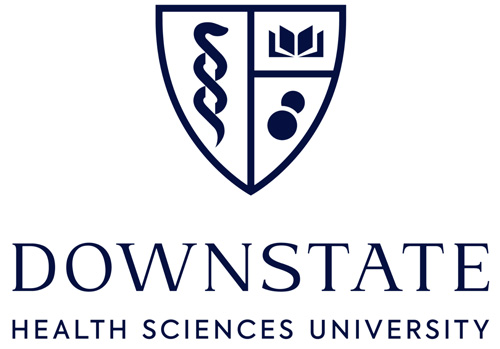 June 5, 2025 — For the past 18 months, PEF has led a bold and unwavering campaign to protect SUNY Downstate from closure and privatization. This critical hospital—serving some of Brooklyn’s most vulnerable residents—has become the epicenter of a fight for healthcare justice, and PEF is standing firm alongside nurses, healthcare professionals, clergy, and community leaders.
June 5, 2025 — For the past 18 months, PEF has led a bold and unwavering campaign to protect SUNY Downstate from closure and privatization. This critical hospital—serving some of Brooklyn’s most vulnerable residents—has become the epicenter of a fight for healthcare justice, and PEF is standing firm alongside nurses, healthcare professionals, clergy, and community leaders.
From the steps of Borough Hall in Brooklyn to the Governor’s office in Albany and the halls of the U.S. Congress, our message has been clear: SUNY Downstate must remain a full-service, public hospital.
A Year and a Half of Relentless Action
Since early 2024, PEF has coordinated more than 40 rallies, strategy sessions, and advocacy events. These include:
-
- Rallies in Brooklyn and Albany demanding accountability
- Strategic collaboration with UUP, SEIU, AFT, and the Brooklyn clergy
- Development of a comprehensive “Brooklyn for Downstate” proposal—focused on a community-driven, full-service healthcare model
- Regular meetings with the Governor’s office, SUNY leadership, Borough Presidents, and key legislators
- Hearings held at SUNY Downstate and Medgar Evers College, plus monthly coalition meetings and pressure campaigns demanding transparency
Taking the Fight to Albany—and Beyond
PEF’s campaign quickly expanded to both state and federal arenas. In December, PEF met with Senator Chuck Schumer’s office to emphasize the need for federal support. At the state level, we mobilized advocacy days in Albany, urging legislators and agency officials to safeguard Downstate’s future.
Monthly strategy sessions with the Brooklyn Health Alliance, local clergy, and community groups ensured that momentum never stalled. Our collective voice has grown stronger, unified by a single demand: preserve inpatient services and invest in the hospital’s future—do not dismantle it.
Holding the State Accountable
At a pivotal strategy meeting on April 24, 2025, with the Governor’s office, PEF and coalition partners raised serious concerns:
-
- The Downstate Community Advisory Board (DCAB) violated open meetings laws and failed to publish meeting minutes.
- Financial models used to justify the elimination of inpatient care were misleading and flawed.
- All state-supported alternatives to full-service care have focused on outpatient services—an approach the community has never requested.
The public learned that consulting firms Adena Consulting and Deloitte are scheduled to submit recommendations on Downstate’s future by June 1, 2025—but whether those findings will be shared publicly remains unclear.
Consultants, Conflicts, and a Crisis of Credibility
Much of the so-called “transformation” process has been outsourced to private consultants. Adena Consulting has coordinated logistics, while Kaufman Hall has provided financial and performance data—frequently questioned by panel members for its accuracy and objectivity.
Alarmingly, some members of the panel, including Donald Moore, have publicly dismissed community concerns, defending consultant-driven claims that staff are “unproductive”—rhetoric that mirrors harmful anti-worker narratives used to justify cuts and privatization.
Meanwhile, architectural firms like QPK, Ramboll, and Ewing Cole have pushed claims that the current facility is “unsustainable”—without any community impact analysis or public health planning to back it up.
Five Plans—Only One Built for the People in
Currently, five proposals are under consideration. Only one—Brooklyn for Downstate—was built in collaboration with healthcare workers and the community. The others include:
1. The Chair’s Plan – details remain undisclosed
2. SUNY’s Plan – assumed to be outpatient-focused
3. Donald Moore’s Plan – publicly floated; proposes a downsized ambulatory model and bed sharing with Kings County
4. Dr. James McDonald’s Plan (DOH Commissioner) – details not made public
5. Brooklyn for Downstate – the only plan that preserves inpatient services and medical education in a full-service model
The suggestion that SUNY Downstate’s academic programs can continue without inpatient services defies industry standards and would jeopardize its accreditation as a teaching hospital.
Community Response: “Outpatient Is Not the Answer”
PEF and its allies have been clear: the community does not support an outpatient-only model. Such proposals ignore the complex, inpatient care needs of the medically underserved population in Central Brooklyn. The so-called “transformation” process is nothing short of a misdirection—focused on budgetary optics, not public health outcomes.
That’s why PEF is doubling down on advocacy, transparency, and accountability.
Where We Stand Today
The final community hearing was held on April 28 at Medgar Evers College. While public input was overwhelming in support of saving Downstate, the direction from the panel seems clear: replace inpatient services with an ambulatory care center.
PEF continues to fight back—pressing for public review of the consultant proposals, calling for investment in staffing and infrastructure, and demanding employment protections for SUNY Downstate workers.
The Road Ahead
This movement has been fueled by the power of frontline workers, dedicated allies, and an unwavering belief in healthcare equity. Our coalition is not backing down.
SUNY Downstate is more than a hospital—it’s a lifeline for Brooklyn. Its closure would deepen health disparities and dismantle vital infrastructure.
This campaign isn’t just about Downstate. It’s about the right of every New Yorker—regardless of zip code—to access quality public healthcare. It’s about accountability. And it’s about making sure no one is left behind.
PEF, UUP, Brooklyn’s clergy, and community partners are standing strong. The fight continues—and we urge every member to stay informed, stay engaged, and stay ready.
Editor’s Note: Debbie Egel is employed by PEF as the union’s Interim Downstate Field Director, responsible for overseeing Field Service operations in Regions 9-12.
Download the new PEF Appfor the latest union news and resources on the go! |
